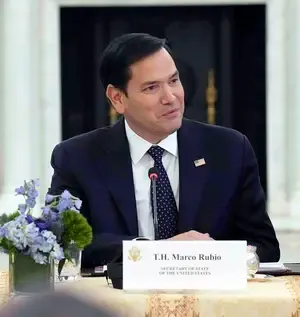How Will S. Korea's Celltrion Navigate the US Drug Pricing Executive Order?

Synopsis
Key Takeaways
- Celltrion anticipates minimal impact from the US executive order on drug pricing.
- Biosimilars are not included in the MFN pricing model.
- The MFN pricing could enhance competition in the US market.
- Celltrion's Remsima SC is uniquely classified in different regions.
- The company is committed to adapting to global regulatory changes.
Seoul, May 21 (NationPress) Celltrion, a prominent biopharmaceutical firm from South Korea, indicated on Wednesday that it anticipates only a limited effect from the recent US policy changes related to a drug pricing executive order enacted by President Donald Trump.
Just last week, Trump revealed an executive order that establishes a most-favoured nation (MFN) pricing framework, aimed at aligning US medication prices with the lowest prices paid by comparable countries, as reported by the Yonhap news agency.
The US Department of Health and Human Services provided additional information on Tuesday, specifying the MFN target price to be the lowest drug price available in an OECD member country with a gross domestic product (GDP) per capita of at least 60% of that of the United States.
Celltrion remarked, “This announcement targets high-cost medicines.”
Furthermore, the company mentioned, “The effect on Celltrion’s products is likely to be minimal, as biosimilars, which are already accessible at reduced prices and contribute to lowering drug expenses via competition, are not encompassed in this measure.”
Celltrion believes that the MFN pricing regulation will create prospects for biosimilars in the long term by making the US pharmaceutical market more competitive.
Currently, under the US pharmacy benefit manager (PBM) system, original biologic medications usually receive preferential treatment in formularies, which restricts the adoption of biosimilars.
Celltrion pointed out that its treatment for autoimmune diseases, Remsima SC, is not expected to be affected by the MFN pricing regulation, as it is categorized as an original biologic in the US but as a biosimilar in other markets. The MFN pricing model aims to compare the US price of an original drug with its international pricing.
The company reaffirmed its commitment to responding quickly to changes in global regulations while continuing to expand its operations.
In 2024, Celltrion reported sales of 3.56 trillion won (approximately $2.57 billion).










